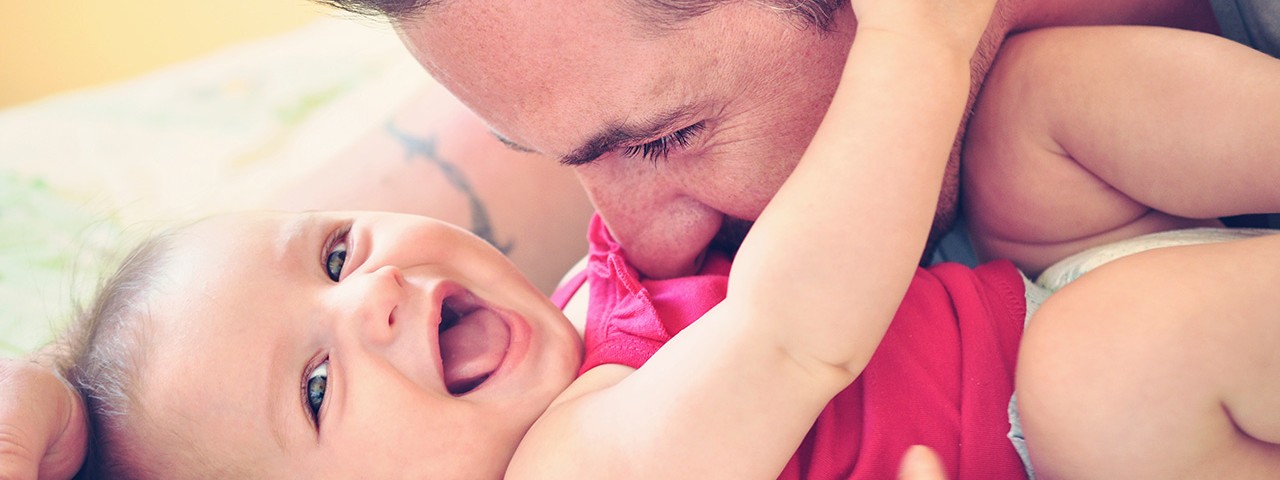Barry White Got it Right
- Tweet

Just like Barry White said in his 1974 hit, babies "Can't get enough of your love." The more attention and affection your infant receives, the more likely he is to grow into a well-adjusted child and adult. In order to reach his potential, he needs all the love you can give him.
Just like Barry White said in his 1974 hit, babies "Can't get enough of your love.Tweet thisFor years now, research has been transforming our understanding of early childhood. Scientists can now demonstrate the effects of a baby’s earliest experiences on the development of his brain. Understanding the importance of the early years has, in turn, deepened our knowledge of children’s early social and emotional development.
But this revolution in knowledge has not yet had a sufficient influence on everyday parenting practices. For instance, there are still people telling new parents to be sure not to spoil their babies with too much attention and affection.
Today, we know that many elements that make up who we are as adults are wired into our brains by the time we are three years old. Our relationships, our emotional life, and our empathy for others are strongly influenced by the social and emotional experiences we had as infants and toddlers.
It’s why the concept of spoiling babies is outdated. Instead, providing sensitive parenting is now recognized as the smartest investment that can be made in babies and toddlers.
Attachment is the foundation of later social and emotional development.
When a baby signals that he is thirsty or hungry or wants to be held or cuddled, he is expressing a need. When a parent responds to these cues and attends to his needs, he develops a sense of trust and security. Even simple, everyday interactions like responding to his coos and smiles send him the message that he is important, lovable, and loved.
This sense of security, which researchers call attachment, forms the basis for healthy childhood development. Healthy attachment is crucial for social and emotional skills that help a child learn to regulate their behavior and cope effectively with challenges.
Attachment problems can have effects that begin early and may appear in various forms, including hostility toward others, fear of exploring new experiences, or difficulty in accepting warmth from parents and caregivers. Effects can also persist throughout life: Many of the problems – or successes – that come later in life can be traced back to whether a young child developed strong attachments to his primary caregivers.
This is why it’s so important for parents and caregivers to be intentional about making sure children have access to early experiences that encourage and strengthen attachment.
What can place a child at risk for attachment problems?
Anything that limits positive, warm interactions between parent and child can be an attachment risk. Examples include persistent stress, maternal depression, inappropriately harsh discipline, and family instability. Negative influences like these are potential barriers to attachment and tend to interfere with the ability of parents and infants to read and respond to each other’s signals.
Low-quality child care can also represent a risk. Insensitive, unresponsive child care can obstruct development of attachments. It’s important for providers to be affectionate, stimulating, and loving to the children in their care.
Frequent changes in child care arrangements can have negative effects similar to the effects of low-quality care. Babies need to know the caregivers in their lives. The stability of these relationships contributes to the processes involved in forming secure attachments.
Attachment problems are common, but there are proven solutions.
Too many Memphis families face adversities that place young children at risk for attachment problems. Toxic stress, teenage pregnancies, substance abuse, domestic violence, maternal depression, and child maltreatment are far too common in our community.
That’s why it’s important for all of us to be attentive to whether babies in our families, in our churches, and in our neighborhoods are given opportunities to form healthy attachments. As the foundation for later development, strong and secure attachments will prove valuable all through their lives – preparing them to adjust well to school, to make friends, to exhibit high self-esteem, and to be cooperative, positive, and enthusiastic.
The good news is that help and interventions are available to families whose young children face attachment difficulties. Taking the first step is often the hardest, and that’s why it’s up to all of us to offer to take that step with parents who need help.
